Ask an Attorney a Question for FREE!
Insurance Vehicle Repair
Learn how insurance companies try to save money at your expense and learn what to do about it!
If the insurance vehicle repair is not what you expected, then it is because insurance companies are always trying to get more “bang for their buck.”
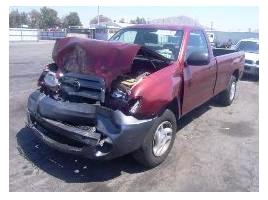
The reason why they can do this is because they have “reasonable and necessary clauses" written in the policy.
This clause entitles them to look at the average market value of an item and pay that amount.
For example, if you decide to take your car to a bodyshop for repairs, the insurance company will look at the “ongoing” rate for a bodyshop in your area and pay that average.
This means that you cannot take your car to a dealership.
The dealership rates are often considerably higher than non-dealer bodyshops. Since insurance companies only pay for the average market value of a product or service, they will only pay the rate the lower grade bodyshops charge (usually there are more of them, thus making the average rate low).
In my local area, the hourly rate of the bodyshop at a Honda dealership is about $70. Non-dealership bodyshops charge about $45 for the same service. Therefore, I would only receive $45 per hour “allowance” when fixing my car (I own a Honda).
To some people having their car fixed in a non-dealership approved facility is not a big deal. To others it is a huge deal. I am part of the latter group.
I believe that if someone hits my car and damages it, then my car should be fixed by the people who know how to fix the same year, make, model of my car. When something happens to my car, I take it to the dealer. Why should I change shops when an insurance company is paying?
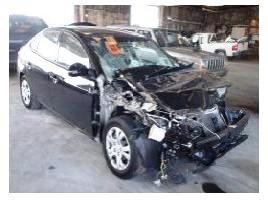
I believe that it is reasonable and necessary to take it to a dealer. However, an insurance vehicle repair seems to be cheaper and of a lower quality.
Insurance carriers argue that these non-approved shops are as good as the dealerships. I believe that some are. However, how can you really tell?
Having the dealership “stamp of approval” gives much more weight to the fact the car will be fixed correctly. The insurance companies seem to take your choice away from you by “forcing you” to have your car fixed at a non-dealer bodyshop.
The bodyshop or mechanic rates are not the only aspects where the insurance company will shortchange you. They will also fix your car with aftermarket parts.
These parts are non-dealership parts. They are from companies that manufacture the same parts at a lower price (usually Japanese, Taiwanese, Chinese, or Korean parts).
The insurance adjuster will tell you that these parts are as good as dealership parts. They will also argue that the parts that you had in your vehicle were not “new.”
They were used (unless your car was brand new), so you should be happy with getting some new aftermarket parts.
My experience with these parts is not that pleasant. They have a hard time getting these parts to fit properly. If you are involved in this kind of dispute, try to find out where these parts came from.
Try to stay away from Chinese and Taiwanese parts. They are a “little better than cheap plastic.” Japanese parts are your best bet.
Also, if they cannot find the exact part that you need in an aftermarket retailer, they will give you a new one right?
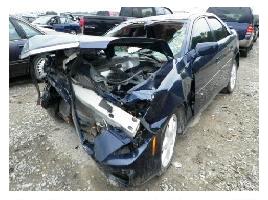
No! They will go to a junk yard and see if they can find a used one for you.
Remember, the fact that insurance is not paying for something does NOT mean that you are not entitled to recover that cost.
You can choose to pay the dealership the difference between what the value of the insurance vehicle repair is (what they paid) and what they do not.
Then you can turn around and present a lawsuit against the person that caused the accident.
Many courts want to see that you acted reasonably, so get estimates from all dealerships and show that you did not go to the most expensive one, but you went to a reasonable one that was approved by your car’s dealership.
You do not have to do this in a normal lawsuit. Many times you will be able to go after the person in a small claims court action.
Remember that the insurance company has to defend their client in case of a lawsuit. The person that hit you would receive free legal advice, which could put you at a disadvantage, so check with a lawyer.
Attorneys know how to deal with a bad insurance vehicle repair.
If you are dealing with your own insurance company, you will be a little more restricted regarding the type of claim you can make against the insurance company.
When you have a policy with that insurance company, you are under a contract (the policy is your contract), so the reasonable and necessary clauses have “stronger weight.”
If you are in the situation of a bad insurance vehicle repair, look at the definition of “reasonable and necessary” in your policy. You might be surprised. There might not be any indication that your insurance company has the rights they are claiming.
Look at your state insurance code or statutes and look for the definition of reasonable and necessary (in the actual statute, not the policy).
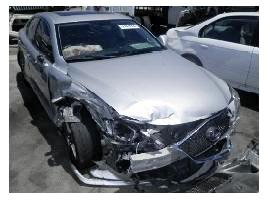
Most insurance codes define these terms for insurance purposes (the field you are dealing with) and it is possible that the state definition protects you much more than what the policy says.
There are several occasions where insurance carriers will issue payment for what they believe the insurance vehicle repair should be.
If you are dealing with your own insurance company, then they will pay you per their estimate minus your deductible.
Note that they will only do this if you are the SOLE owner of the vehicle. They will ask to see the title of the car and they will issue payment to that person(s) and the policyholder.
If you have a loan, they will issue payment to you and to the bank!
Financial Responsibility Clauses gives them the right (and obligation) to protect any lien holder against the vehicle.
What is the bank going to do with the money for the insurance vehicle repair? They will apply it to the balance of the loan!
The situation is a little different if you are dealing with someone else’s insurance company.
You do not have a policy with them, and therefore they do not have a financial responsibility clause to obey. They can just issue payment to the owner of the car.
In either scenario, they will pay what they think the insurance vehicle repair will cost. Some people never have the intention to fix the vehicle (the damage was not very noticeable, or the car is too old), so this is cash for them.
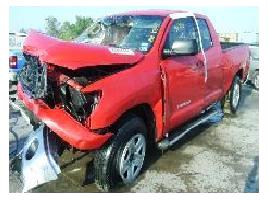
But if you are intending to fix the car, you better take the estimate to a mechanic and make sure that they pay and cover all damages.
If there is any insurance vehicle repair or repairs in your car, then once your car is fixed, you MUST drive into another shop and have them review the repairs!
You will be surprised to find out that the insurance company’s bodyshop did “cut corners.”
If you delay going to another shop, the insurance company will claim that the newfound damage is not related to the accident and therefore, they do not owe you for it.
Protect yourself and double check to ascertain that the repairs were done correctly.
1. Insurance Vehicle Repairs
2. Can I dispute the adjuster's estimate?
3. Auto Claim with Prior Damages
4. My car is on fire! Fire losses
5. Auto Damage Estimate
6. Diminished Value Claims
7. Vehicle Total Loss Part 1
8. Vehicle Total Loss Part 2
9. Rental Car Claim and Loss of Use Page 1
10. Rental Car Claim and Loss of Use Page 2
11. Stereo Equipment Claim
12. Personal Property Damage Claim
13. Sentimental Property Damage Claim
14. Damage to Real Property Claims
15. Animal Loss or Vet Bills Claim
|
For a Free Review of Your Case
Please Call (866) 878-2432 |


